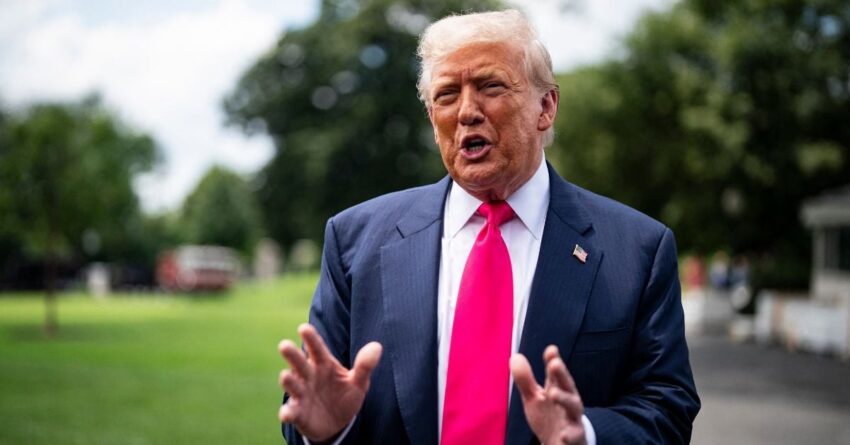President Donald Trump’s favorability among Asian American, Native Hawaiian and Pacific Islander (AAPI) adults has sharply declined over the past year, according to a new AAPI Data/AP‑NORC poll.
The findings suggest that economic anxieties, particularly regarding tariffs and inflation, are driving a growing wave of disapproval toward the president among this rapidly expanding voter demographic.
Trump’s favorability

The national survey polled 1,130 AAPI adults and revealed that 71 percent now view Trump unfavorably, up from 60 percent in December 2024. The steepest drop in support comes from AAPI independents, where unfavorable opinions have surged by nearly 20 points.
Economic worries appear to be at the core of the shift, with about 80 percent of respondents saying they believe Trump’s proposed tariffs would lead to higher consumer prices, while only 40 percent expected any boost to U.S. manufacturing. Just 20 percent anticipated job growth.
Nearly two-thirds — 65 percent — reported being “extremely” or “very” worried about a potential recession, compared with 53 percent of Americans nationwide in an April AP-NORC survey.
Trump’s tariffs

Trump has repeatedly threatened to impose new tariffs, insisting they are necessary to address trade imbalances — but his proposals have raised alarm in AAPI communities, where many residents feel acutely vulnerable to economic disruptions.
Inflation in June reached its highest level since February, with tariffs contributing to rising costs for everyday essentials, including groceries and household appliances.
“Here in Hawaii, because we’re so isolated, everything comes on a ship or a plane,” said Michael Ida, a 56‑year‑old teacher, in comments to the Associated Press. “We’re especially vulnerable to prices rising and disruptions in the supply chain. There’s definitely some anxiety there.”
Reactions

Shopan Hafiz, a 39‑year‑old engineer from Oregon, echoed similar concerns.
“With all the tariffs, I don’t think it’s going to help,” Hafiz said. “All the tariffs will ultimately be paid by U.S. nationals, and inflation is going to get worse.”
Hafiz, who voted for Libertarian candidate Chase Oliver in 2024, said his decision reflected frustration with both major parties, particularly over U.S. support for Israel during the ongoing Gaza conflict.
The poll underscores the growing political influence of the AAPI electorate, which makes up roughly 7 percent of the U.S. population and is expanding rapidly in several swing states.
AAPI voters

Historically underrepresented in national surveys due to small sample sizes and language barriers, AAPI voters have become increasingly engaged in recent election cycles. Analysts say their evolving attitudes could shape outcomes in key battlegrounds for the 2026 midterms and 2028 presidential race.
“This shift signals changing political dynamics in a critical and fast-growing voter segment,” the AP report noted. “Both parties are likely to intensify multilingual outreach and economic messaging to connect with AAPI communities.”
With economic anxieties and policy perceptions driving voter sentiment, the survey suggests that Trump faces an uphill battle to regain trust among AAPI voters — a demographic that could prove decisive in upcoming elections.
The post Trump’s favorability tanks among key demographic appeared first on Knewz.
Click this link for the original source of this article.
Author: Joshua Wilburn
This content is courtesy of, and owned and copyrighted by, https://knewz.com and its author. This content is made available by use of the public RSS feed offered by the host site and is used for educational purposes only. If you are the author or represent the host site and would like this content removed now and in the future, please contact USSANews.com using the email address in the Contact page found in the website menu.








